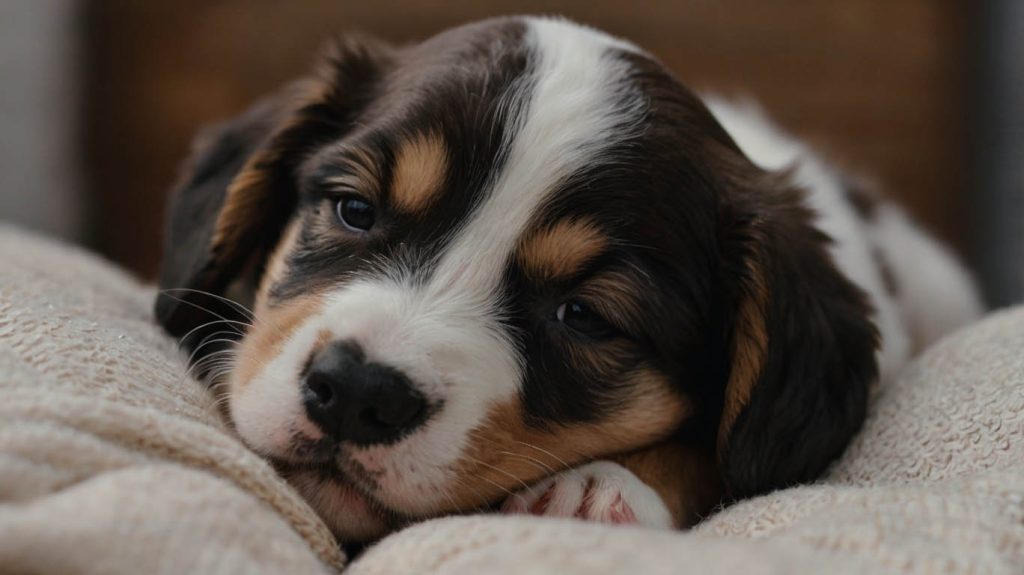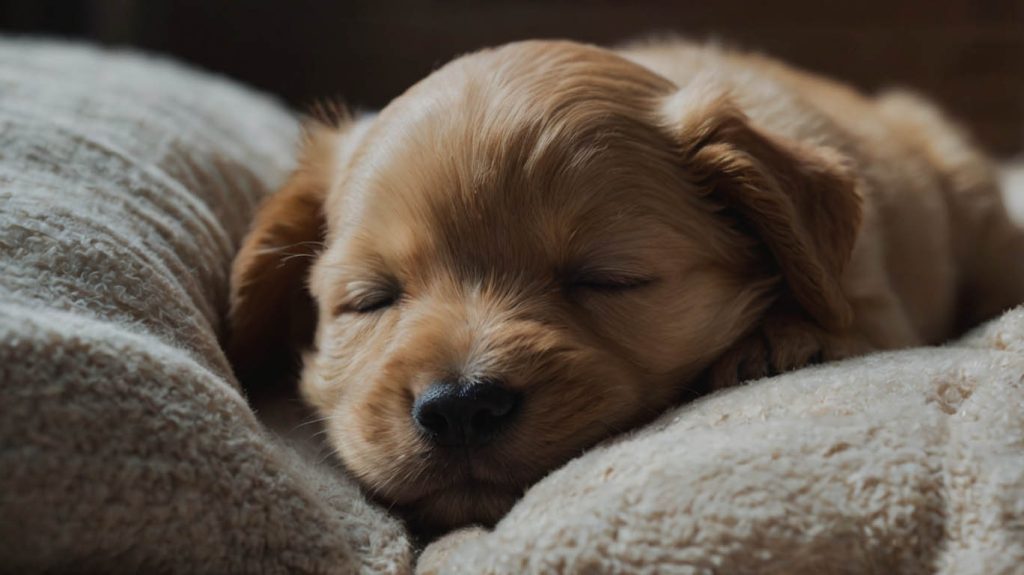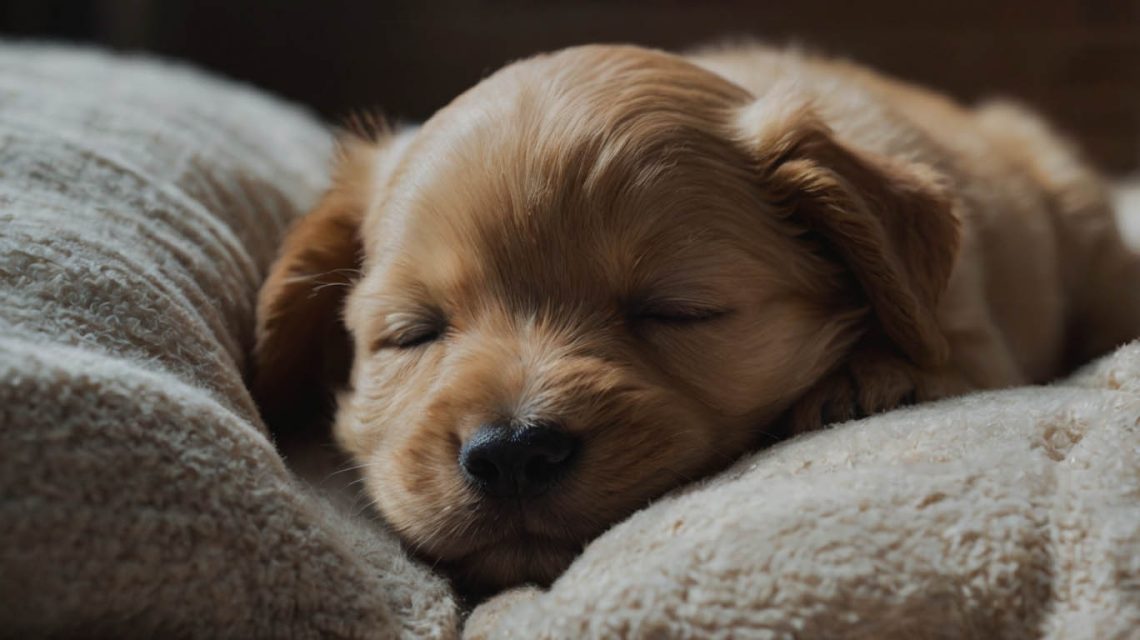How Many Hours Should a Puppy Sleep: The Ultimate Guide for Worried Owners
You’ve finally done it. You’ve brought home a puppy, and your life has transformed into a delightful whirlwind of playtime, training, and cuddles. They seem to have two speeds: full-throttle energy and completely passed out. One minute, they are a tiny tornado of teeth and paws; the next, they are a limp, snoozing puddle on the floor. They sleep so deeply and for such long stretches that a little seed of worry plants itself in your mind. You find yourself quietly asking Google: “Exactly how many hours should a puppy sleep?”
If this sounds familiar, you are not alone. It’s one of the most common concerns for new pet parents. We associate so much sleep with laziness or illness in our human lives that it’s natural to be concerned. However, for a puppy, sleep is the single most important job they have. Consequently, it’s the foundation upon which their entire physical and mental development is built. Therefore, understanding and supporting their sleep needs is not just reassuring; it’s a fundamental part of raising a healthy, happy, and well-adjusted dog.
The Science of Snoozing: Why Sleep is a Puppy’s Superpower
Before we get to the specific numbers, it’s critical to understand why the answer to “how many hours should a puppy sleep?” is “a lot.” A puppy’s body is undergoing an explosive period of growth that will never be repeated in their lifetime. Sleep is the active, essential process that fuels this incredible transformation.
- Building a Strong Body: During deep sleep, puppies release growth hormones. This is the primary time their bodies work on building strong bones, developing muscles, and repairing the tiny tissues stressed during playtime.
- Creating a Smart Brain: Sleep is when a puppy’s brain processes everything they learned while they were awake. Every new sight, sound, smell, and training cue is sorted, categorized, and moved into long-term memory. A well-slept puppy is a smarter, more trainable puppy.
- Developing a Robust Immune System: Just like humans, puppies need sleep to build a strong immune system. This makes them better able to fight off infections and get the maximum benefit from their crucial vaccinations.
- Regulating Mood and Behavior: Have you ever met an overtired toddler? An overtired puppy is very similar. Lack of sleep leads to crankiness, low frustration tolerance, and an increase in unwanted behaviors like excessive nipping and destructive chewing.

The Answer by Age: How Many Hours Should a Puppy Sleep?
A puppy’s sleep needs change as they grow. Here is a reliable breakdown of what you can expect during their first year.
Newborn Puppies (0-8 weeks)
In their first two months of life, puppies are essentially just eating and sleeping. They are still with their mother and littermates during this period.
- Sleep Requirement: Up to 22 hours per day.
- What it Looks Like: They will sleep in a big “puppy pile” with their siblings, waking only for short periods to nurse. This constant sleep is fueling their initial, rapid growth.
Young Puppies (8-12 weeks)
This is the most common age for a puppy to come to their new home. Their sleep needs are still immense, which can be surprising for new owners.
- Sleep Requirement: 18-20 hours per day.
- What it Looks Like: This sleep will be broken up into many naps throughout the day, often following a “one hour awake, two hours asleep” pattern. They will also (hopefully) sleep for a longer stretch at night. It is perfectly normal for your new puppy to spend most of the day napping. This is a critical factor when considering how many hours should a puppy sleep.
Older Puppies (3-6 months)
As your puppy grows and gains more control over their bladder, their sleep patterns will begin to consolidate.
- Sleep Requirement: 16-18 hours per day.
- What it Looks Like: The naps might become slightly less frequent but longer in duration. They will have more defined periods of being awake and active, but they still need significant downtime to recharge.
Adolescent Puppies (6-12 months)
Welcome to the teenage years! Your puppy might look almost full-grown, but they are still developing and require more rest than an adult dog.
- Sleep Requirement: 14-16 hours per day.
- What it Looks Like: You’ll see a more adult-like pattern, with most sleep occurring overnight. However, they will still benefit from—and absolutely need—several long naps during the day, especially after exercise or training.
How to Create the Perfect Sleep-Friendly Environment
Knowing how many hours should a puppy sleep is the first step. The next is actively helping them get that quality rest. Puppies are not good at self-regulating and often become overtired without realizing it.
Embrace the Power of a Schedule and Enforced Naps
A consistent daily routine is a puppy’s best friend. Predictable times for waking, potty breaks, meals, play, and sleep help regulate their internal clock. Don’t be afraid to enforce nap time. When your puppy starts getting wild, nippy, and “crazy,” it’s often a sign they are overtired. This is your cue to lead them to their crate or quiet space for a mandatory nap.
Make the Crate a Cozy Den, Not a Cage
Crate training is an invaluable tool for ensuring your puppy gets uninterrupted sleep. Make the crate a wonderful place to be by feeding them meals in there, giving them special “crate-only” toys, and never using it as a punishment. When it’s nap time, they will learn to see their crate as a safe, peaceful den where they can truly relax.
Establish a Calming Bedtime Routine
Just like with a human baby, a predictable routine signals that it’s time to wind down. An hour before bed, switch from active games to calm activities like gentle petting or chewing on a favorite toy. A final potty break right before being put to bed for the night will help them sleep for a longer stretch.

Puppy Sleep Quirks and When to Be Concerned
- Twitching and “Running” in Their Sleep: This is completely normal! It’s a sign they are in the REM (Rapid Eye Movement) stage of sleep, which is crucial for brain development and memory consolidation. Let them dream.
- When to Worry: While sleeping a lot is normal, you should contact your vet if you notice a sudden, drastic change in their sleep patterns or if their sleepiness is accompanied by other symptoms like loss of appetite, vomiting, diarrhea, or extreme lethargy where they are difficult to wake and uninterested in anything when they are awake.
Your Puppy’s Sleep is a Sign of a Healthy Future
The next time you see your puppy snoozing soundly, take a moment to appreciate the incredible work their body and brain are doing. The answer to “how many hours should a puppy sleep?” is a reassuring “plenty.” You are not just watching them rest; you are watching them build the foundation for a long, healthy, and happy life with you.
What sleep habits have you noticed in your puppy? Share your experiences or ask questions in the comments below!


